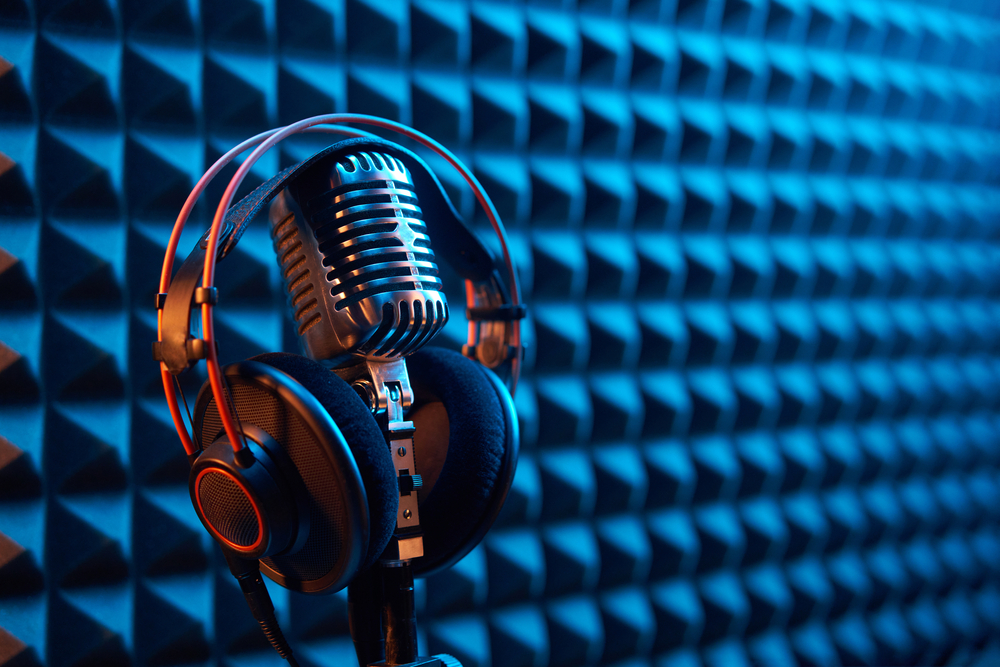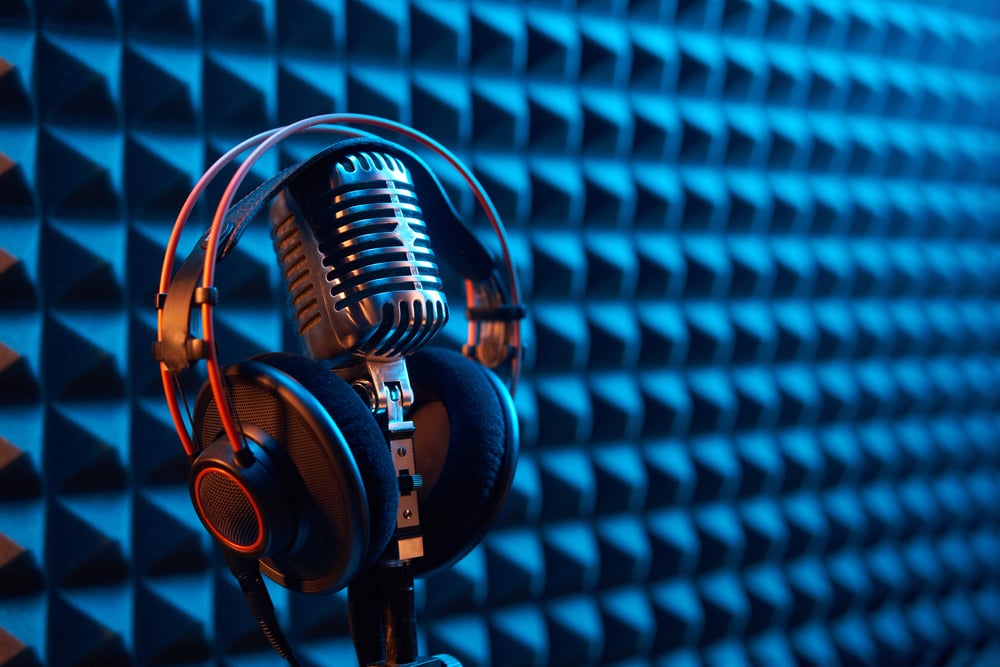Missouri Marketing Resource Blog

7 Must-Know Tips for Your First Radio Marketing Campaign
 Originally Published 1/11/16. Updated for Accuracy 8/19/22.
Originally Published 1/11/16. Updated for Accuracy 8/19/22.
Using radio advertising for the first time can be a little intimidating. No one wants to pay for a marketing campaign that won't succeed, especially if it's because of something as important as choosing the right media partner.
To help first-time radio advertisers get their campaigns started correctly, we've prepared a list of 7 important tips. These tips are perfect, not just for new radio advertisers, but for any advertisers. They are solid marketing strategies that apply to more than just one medium. Nothing wastes more money than regret...and we prefer to learn from over 60 years of experience in working with all types and sizes of businesses. Here are some of the things we've learned:
1. Let Your Media Partner Help
You've hired a media partner because of one simple fact: they are the experts in bringing campaigns to fruition and you ought to be taking advantage of that expertise! Your radio partners can help you determine when to advertise, and in what format to reach your ideal audience. They also have the tools to ensure your advertising is nailing it when it comes to the 3 M's of Marketing: Message, Medium, and Market.
Of course, developing a strategy with well-defined goals is the best way to start. The more specific you can be, the more your media partners can help you reach your goals. If you haven't already developed one, your media partners can help with that too. The more information you share, the better your media partner can craft a campaign that will hit those goals. Additionally, your account manager should schedule monthly meetings with you to review goals, make campaign adjustments, discuss new creative, analyze competitors, etc.
2. Understand the Audience You're Trying to Reach
While audience segmentation is important, that's not what we're referring to here. When we say that you need to understand whom you're trying to reach, we mean what people are doing when they are exposed to your radio advertising. When your goal is finding and utilizing the way to craft your campaign, it's important to understand when and how your audience is listening to the radio.
Do you know when and how your audience will be listening? If it's most likely they only listen while driving, you may need to target drive times for your advertising. But, considering these times are a great way to reach people in their cars, as an advertiser you should be prepared to pay more. You can also try targeting listeners at work, and utilizing online radio platforms for your advertising. This is also something your media partner can help with as most radio stations have a digital/streaming component available to advertisers.
Remember: Marketing is not one-size-fits-all. You need to work with your media partner to develop the best plan that serves the audience you need within your budget.
3. Start by Focusing on Your Message
Once you've got the framework of when to advertise and on which formats, etc... you may think that means it's time to get into your audience segments. Unfortunately, the segments aren't going to matter if you don’t have a compelling, creative message.
What you say in your ad is just as important if not more so than whom you are targeting. Make sure you do everything you can to produce the best radio ad possible. Know your unique selling proposition, be able to tell your story, resist the temptation to talk about everything in your ad, and find an emotional connection. Additionally, think of your radio ads in terms of an ongoing campaign with consistent thematic elements versus in terms of a single ad for a singular purpose. Talk to your media partner about how you can determine and market with an eye toward a unique selling point, memorable content (e.g., jingles and slogans), and effective calls-to-action.
4. Integrate and Synchronize Your Marketing Efforts
The modern consumer journey is fragmented, split among any number of channels. Only using one channel for any campaign dooms that campaign to minimal success. When integrating and combining advertising, businesses have seen a 23% lift when you add online marketing. But there is a balance to strike between integration across channels and “spraying and praying.” Your marketing will not be as effective as it can be if you’re spending a little bit everywhere instead of concentrating and dominating select channels.
By creating an omnichannel campaign that combines radio with efforts in digital, social media, outdoor, and print, you can run a larger, even more, successful campaign. You can also synchronize your campaigns to fully amplify your brand message as well as individual campaign messages. And yes, this is another area that your media partners can help with!
5. There Are Two Keys to Success: Frequency and Consistency
Integration and synchronization can only work if you have the right message going out at the right times consistently. If you're looking for ROI that's a direct result of rate statistics, you aren't going to find it. Anyone that says they can definitively tell you what your results will be to a certain ad spend or medium isn't selling you above-the-board services. Repetition (i.e., frequency and consistency) is the only causal factor with a direct, noticeable effect on results. For your media consultant, the goal is for each of your channels to successfully work together, and not against each other.
Remember: You need to have realistic expectations for what you can accomplish within your budget. You may not see the results you're hoping for if your campaign ends too soon.
6. Get the Best Bang for Your Buck
The frequency you select in particular can lend itself to this. With the right scheduling, your budget can stretch for a longer period. Of course, that's only the beginning. There is any number of areas that make your radio ad spend easier on your wallet, including promotions, shorter ads, and purchasing farther in advance. You can also ask your media partner about bundled service packages or volume discounts for longer contracts.
7. Remember Your Media Partner Offers Other Services — Take Advantage of Them!
Don't make the mistake of assuming that, because your media partner focuses largely on radio, they're not experts in anything else. They have access to large, local followings and tend to be hands-on in their communities. In addition to your campaigns with specific calls-to-action, there are plenty of other ways your media partner can help raise brand awareness. These options are designed to craft a strategically aligned marketing campaign across multiple channels and thereby dramatically increase the likelihood of success. Here are just a few of the options:
-
Events Marketing / Sponsorships — One of the easiest ways to put your brand in front of people is to put people in front of your brand. Radio stations are involved with numerous concerts, contests, and more, so whether you decide to sponsor an event, or simply purchase booth space at one, you're boosting your brand and positioning yourself as something worthy of audience attention.
-
On-Air Endorsements by Radio Personalities — Studies show a more than 50% increase in consumer trust based on on-air radio testimonials from their favorite DJ or host. Just make sure you find one that's interested in your company or product and who aligns well with your company message.
-
Digital — Digital ads, SEM, retargeting, geofencing, and CTV are by far the most interactive. Depending on the platform they're being delivered on, they offer a multi-sensory experience that improves brand and message recall. Furthermore, studies show that online campaigns earn $3 for every $1 of ad spend.
-
Social Media — The phenomenon is literally about engagement and building relationships. This will tell you the most about the audience that's tuning in. Your radio endorsement may even come with some social media mentions from that host or DJ as well. The radio format you’re advertising with likely has a strong, and active, social media following, and a mention via their channel can produce big results for advertisers.
Getting started with radio advertising should be a big step toward engendering a good relationship with your audience. With these seven tips for using radio advertising for the first time, you can begin your new marketing campaign with confidence.


